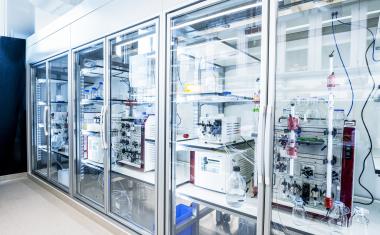U.S. 2010 Oil Refining Capacity Hits 29-Year High
U.S. oil refining capacity increased to its highest level in nearly three decades during 2010, but refining operations remain well below historical highs seen in the 1990s, the Energy Information Administration said Wednesday.
There were 148 refineries operating in the U.S. at the beginning of 2011 with a capacity to produce 17.7 million barrels of petroleum products a day, up 0.9%, or 152,000 barrels per day, from the previous year, the EIA said.
The increase in capacity is mostly due to the restart of PBF Energy's 182,200-bpd Delaware City, Delaware refinery that was purchased from Valero Energy in 2010. The refinery was idled this January, but the capacity was considered operable.
Marathon Oil Corp also added 28,000 bpd of capacity to its Garyville, La., refinery, increasing output to 464,000 bpd. The Garyville plant was the last new refinery built in the United States in 1977.
Marathon's refining, transportation and marketing arm will officially split off from the parent on Friday as Marathon Petroleum Company, the nation's second-largest independent refiner behind Valero Energy Corp.
Exxon Mobil has the most U.S. refining capacity at nearly 1.855 million bpd, ConocoPhillips rose to second with 1.787 million bpd in capacity while Valero Energy fell to third with 1.682 million bpd in capacity, according to the agency.
U.S. refineries were running at over 95% of capacity in 1997 and 1998 to meet growing demand for petroleum products. Many refiners expanded to keep up with demand and refinery utilization still averaged above 90% through 2005, EIA said.
The U.S. recession caused lower petroleum demand, pushing U.S. refining operations down to 83% of capacity in 2009.
"While the refinery utilization rate increased to about 86% in 2010, it remains well below the levels seen from 1993 through 2005," the EIA said.
The Federal Trade Commission announced earlier this month it would investigate whether refineries were operating at lower levels to reduce available fuel supply and thus keep gasoline prices high.


















